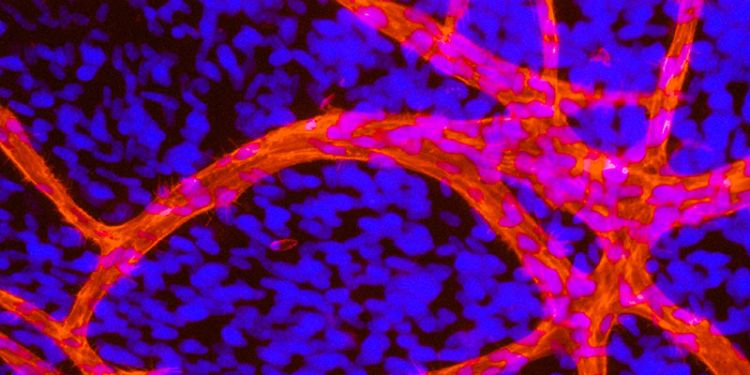Advanced Training Programme in Biological Sciences
Bioimaging

Monday 20 – Friday 24 July 2020
Overview
In this course you will learn about a range of imaging techniques that can be used in biological research. You will make your own samples using fluorescently labelled antibodies to label Actin and Tubulin in Hela cells. You will then image these and other samples on a range of different microscopes to highlight the different microscopy techniques. You will learn about image analysis methods and presenting your data for publication.
Practical content
- Fixing and labelling cells for fluorescent microscopy.
- Fixed cell imaging using fluorescent proteins to report on the cell cycle.
- Experience of imaging on a range of different imaging systems including, fluorescence, deconvolution and confocal microscopes.
- Using the ImageJ suite of programmes to analyse microscopy images.
Learning outcomes
On completing this course you should be able to:
- Understand the principles of phase contrast, fluorescence, deconvolution and confocal microscopy.
- Be able to design a fluorescent microscopy experiment which is appropriate for the equipment you have available.
- Understand the principles of sample preparation for fluorescent microscopy.
- Be able to perform basic image analysis using standard software.
- Understand how to present images and create figures for publication.
Course structure
The course will be a mix of theory and practical sessions. You will work in pairs to make your samples and collect your images in pairs or small groups under the guidance of a team of experienced teachers. The class will be brought together for theory and data analysis sessions.
Who would benefit from this course?
- Recent graduates preparing to undertake Masters-level training with a significant research component.
- Recent graduates with limited practical biosciences experience wishing to increase their competitiveness for research degree (PhD) programmes.
- Graduates from scientific disciplines outside the molecular/cellular biosciences looking to develop competencies in these areas.
- Undergraduate students approaching their final year of study, in particular those preparing for research projects.
Fees and funding
Programme fee: £750 per week payable to the University of Leeds prior to the course starting. This fee includes tuition costs, consumables for the practical sessions and lunch during the teaching day. It does not include costs for accommodation or any living expenses.
If you’re unsure about the application process, contact fbsadmissions@leeds.ac.uk or +44 (0) 113 343 3021.
How to apply
Applications for 2020 are now open!
All applications for the Advanced Training Programmes must be made online. The application deadline for the Advanced Training Programmes is 4pm on May 6 2020.
We recommend that you apply as soon as possible as enrolment is limited and allocated on a first-come first-served basis. Applying early also means you are more likely to secure a place on your first choice of course as popular subjects are likely to fill up quickly.
Read about visas, immigration and other information in International students.

